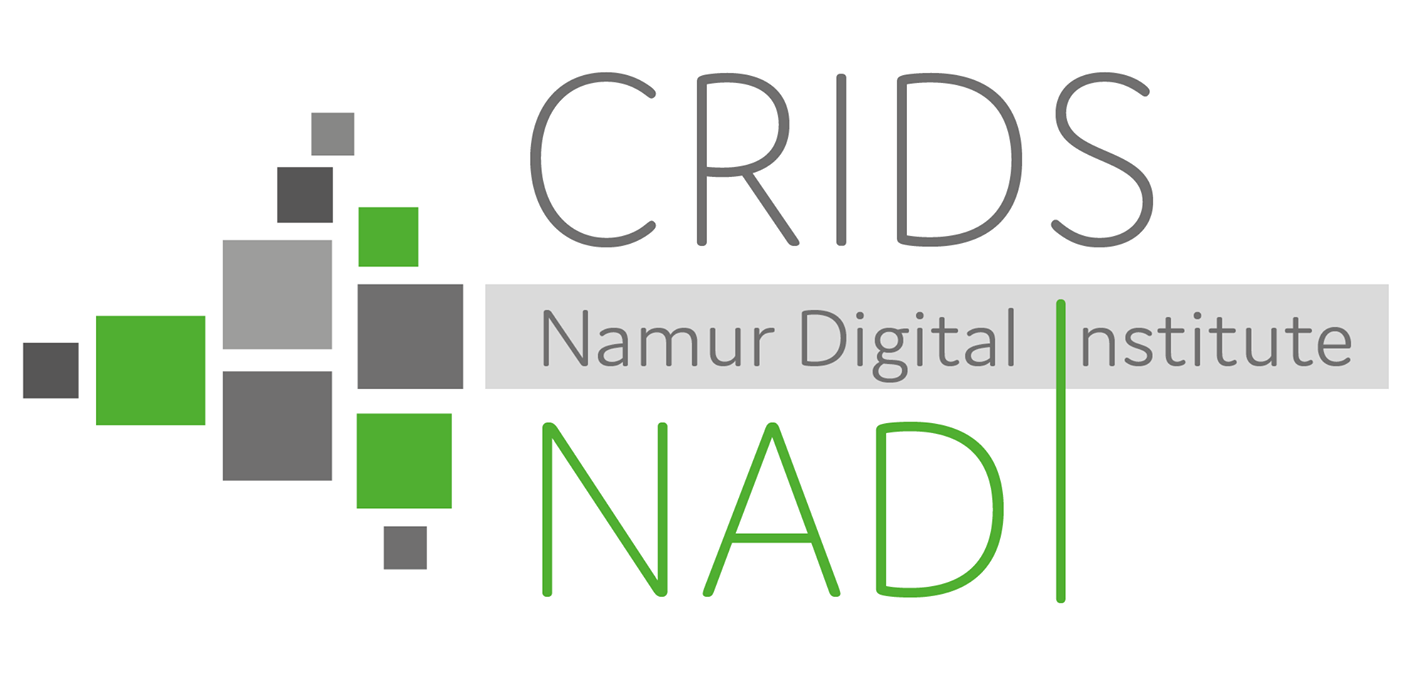Digital Media & Communication

The Digital Media and Communication research unit of the CRIDS gathers researchers in information and communication sciences. Through different projects, the unit has developed specific expertise in digital practice studies, digital and media competence analysis, education tools design and digital media corpus analysis. The research supports a more inclusive society by empowering citizens, through a greater understanding of technology and digital environments and the development of reflexive uses.
The main research topics include:
- Digital media education
- Digital and media literacy
- Intelligibility of technology
- Digital work environment and distant co-working
- Collaboration and sharing practices
- Personal information management and information literacy
- Digital identities
- Internet addictions
- Digital media and transmedia designing
- Digital rumours
- Citizen participation and inclusion in a 'digital society'
These topics are tackled either separately or together as they can be deeply connected. The research unit conducts both fundamental and applied research and aims to be at the forefront of the field thanks to its junior and senior researchers as well of its academic members.
Head of Unit
Members
- Fanny Barnabé
- Kathleen De Grove
- Carole Delforge
- Sara Dethise Martinez
- Esther Haineaux
- Alyson Hernalesteen
- Annabelle Klein
- Louis Liégeois
- Maxime Verbesselt
Latest publications
A.S.COLLARD, N. GRANDJEAN, F. BORAITA, J. HENRY, Interroger les métaphores pour une éducation critique aux robots, Rhétoriques, métaphores et technologies numériques : l'influence du langage sur notre perception de la numérisation du monde, Québec, Presses de l’université du Québec, 2022, pp. 51-75.
J. GROSMAN, J. JACQUES, A.S.COLLARD, "The beatles with the wower score, it breaks my heart" : framing a media education response to datafication and algorithmic recommendations in digital media infrastructures, Learning to live with datafication educational case studies and initiatives from across the world, London, Routledge, 2022, pp. 135-152.
Key publications
J. JACQUES, A.S.COLLARD, Digital media literacy in teamwork and distance work : competences, discourse and organizational design, Namur, Presses universitaires de Namur, 2019, 239 p. (FREE PDF HERE)
E. HAINEAUX, “L’écriture sur soi : compétence liée à des pratiques transmédia ?”, in : in Collard, A.-S., & Collignon, S. (eds), Actes de la journée d'études sur le transmédia, Namur : PUN, 2019 (to be published).
J. JACQUES, « Personal information management and organisation competencies : a review of information literacy conceptual frameworks and standard», Information literacy in everyday life, Dordrecht, Springer, 2019, pp. 50-59
B. DUMAS, B. FRENAY, A. SMAL, A.-S. COLLARD, A. HERNALESTEEN (2018). “AI in a Nutshell : Three Hands-on Activities for Teenagers”, IDC 2018, Trondheim, Norvège, 19/06/18-22/06/18.
A.-S. COLLARD, J. JACQUES (2018). “Eduquer aux robots : les enjeux de la métaphore du vivant”, in Actes du 16ème Séminaire M@rsouin, Le Bono, Auray, France, 31/05/18.
J. HENRY, A. HERNALESTEEN, B. DUMAS, A.-S. COLLARD, “Que signifie éduquer au numérique ? Pour une approche interdisciplinaire”, De 0 à 1 ou l'heure de l'informatique à l'école : actes du colloque Didapro 7 - DidaSTIC, Lausanne, Suisse, Peter lang, pp. 61-82.
V. LIGURGO, T. PHILIPPETTE, P. FASTREZ, A.-S. COLLARD, J. JACQUES, “A method combining deductive and inductive principles to define work-related digital media literacy competences”, Information Literacy in the Workplace (Communications in Computer and Information Science), Dordrecht, Springer International Publishing, 2018, pp. 245-254.
A.-S. COLLARD, T. DE SMEDT, M. DUFRASNE, P. FASTREZ, V. LIGURGO, G. PATRIARCHE., Patriarche, G. & Philippette, T. (2017). “Digital media literacy in the workplace: a model combining compliance and inventivity”, Italian Journal of Sociology of Education, V.9, n°1, pp. 122-154.
KLEIN A, «Un cadre pour l'identité numérique ?», L’identification électronique et les services de confiance depuis le règlement elDAS, Collection du CRIDS, n° 39, Bruxelles, Larcier, 2016, pp. 29-50.
KLEIN A., « Evolution des dispositifs d’expression de soi et identités numériques », Education aux médias à l’heure des réseaux, Tome 2, L’Harmattan, Paris, 2015
KLEIN, A. (2015). « Evolution des dispositifs d’expression de soi et identités numériques », in Education aux médias à l’heure des réseaux, Tome 2, L’Harmattan, Paris.
R. DECOCK, J. VANGEEL, A. KLEIN, P. MINOTTE, O. V ROSAS, G.-J. MEERKERK, “Compulsive Use of Social Networking Sites in Belgium : Prevalence, Profile, and the Role of Attitude Toward Work and School”, CyberPsychology, Behavior & Social Networking, 2014, Issue 3, pp.166-171





